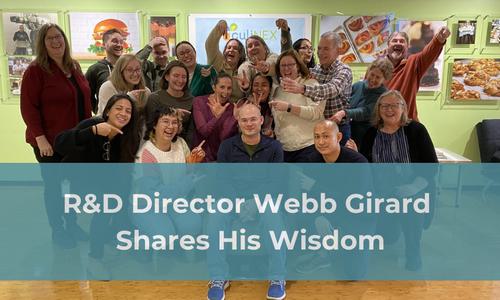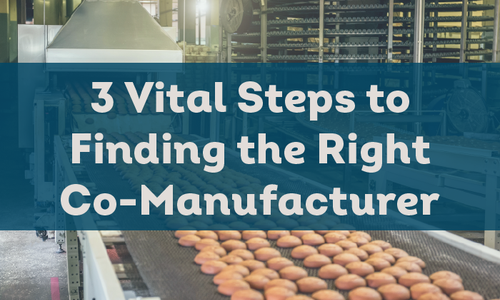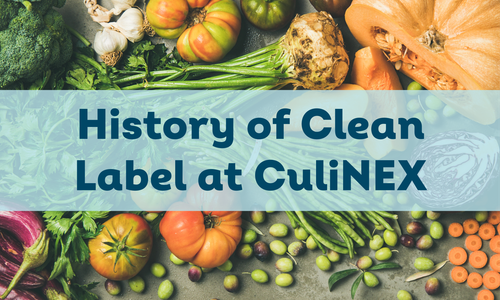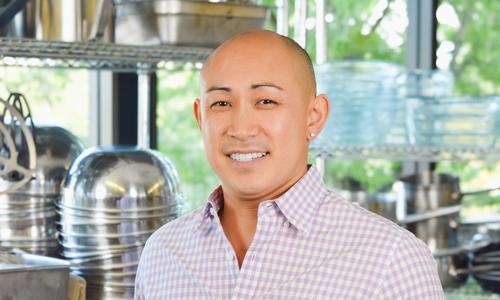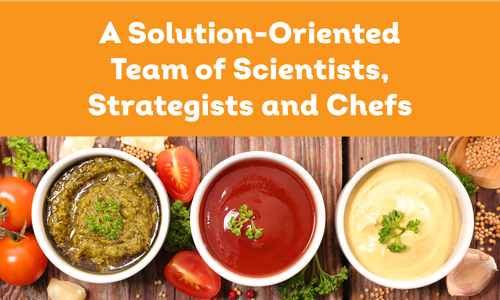BCFT Food Scientists Spotlight: Webb Girard & Katherine Langel
On March 7th, 2016, Jenny Tian, Gracia Windiasti and Karl Li from BCFT New Professionals Committee had the opportunity to interview Katherine Langel and Webb Girard from CuliNex, Seattle, WA, USA via an email questionnaire format. The interview originally appeared in the March 2016 issue of the BC Food Technologists Newsletter.

1. Could you tell us about your career path and how you have decided to go into this field?
Webb (W): I originally went to college for Sports Science. After the first semester I noticed that the school was graduating a large number of students in a saturated field. One of the pre-requisites for the Sports Science program was introductory nutrition, which made a lot of sense to me and sparked my interest. After that it was a choice between pursuing a Nutrition degree or a Food Science degree.
Katherine (K): Initially, I went to college to study hospitality but soon realized that I wanted to pursue a degree in Culinology, a degree focussed on a blend of culinary arts and food science. I developed a love for cooking and knowing the science to answer all the ‘why’ questions. Throughout college, I was able to grow as a Culinologist through internships, competitions, and student organizations.

2. Why did you choose to stay in the academia vs. industry or government?
W: Industry was always where I was going to end up. I like the application of Food Science and seeing how all the different disciplines (Biology, Physics, Engineering, Chemistry, etc.) work together to create what the industry produces. I have been to a lot of different production facilities and it is always enjoyable to see how the different companies use the science to produce their end product.
3. How do you like working in your current company? What is a typical work day like?
W: CuliNex is a very fun company to work for. As a consultancy, we work in all product categories; from baking to dessert, from dairy to meat, from beverage to confectionary and all categories in between. Due to the fluidity of of our business, my work days’ range from project management, to working on the bench, to production testing, and all other points of the development cycle.
K: I enjoy being a Culinologist at CuliNex because every day is different and there is no such thing as a typical work day! We work in a wide variety of categories and do everything from ideation to development to commercialization with our focus on clean label products. My day can consists of an array of exciting tasks such as, concepting new flavors for a new product to launch to talking with ingredient vendors for ingredients to use for development on the bench to scaling up formulas for pilot testing to testing pH and water activity levels for quality control. While we work really hard at CuliNex, we also make time for fun! When we aren’t busy developing on the bench, we continue learning by having education sessions, attending trade shows, and competing in various challenges, such as an insect recipe contest!

4. What are some suggestions or comments you would give to students who are interested in entering the food industry?
W: Wander grocery stores, convenience stores, club stores, and anywhere that sells packaged food. Take a close look a new flavors and packaging. See what the differences are between what products are being marketed at the different types of stores. Be inquisitive on how everything is manufactured and sold. Everything from the fresh produce to the frozen entrees has a significant amount of food science and technology behind it.
K: First, follow your passion and surround yourself with everything food-related. If you are interested in becoming a food product developer, my biggest suggestion is to work in a restaurant and master your culinary skills. While you know the science of food, it is important and essential to know how to make it taste good! Secondly, network with professionals in the food industry by attending trade shows and expos and joining a food-related organization. Thirdly, it is important to never stop learning. There are so many to flavors to explore in the food world and so much knowledge to discover. Never stop researching, experimenting, or tasting!

5. If you were to start all over again, would you still choose a career in the field of food science? If not, what profession would you choose or want to try?
W: I would definitely stay in Food Science. This field is really where I can take my love for food and my scientific nature and merge them together and make a career out of it.
K: I would not change a thing. I know I am in the right industry and I am ready to continue my journey by learning as much as possible from every opportunity!
6. Over the course of your career, what is the most interesting change that you’ve experienced or seen in the food sector?
W: The self-educated “scientists” and how they are impacting change in the industry, and not necessarily beneficially. It isn’t about who is right but who can speak the loudest and who has better marketing. I see the misinformation being perpetuated on social media and it is driving purchasing decisions and lifestyle changes, and in some cases corporate policy.
7. What do you see as the next big trend in the food industry?
W: Transparency in food. With the anti GMO and clean label movements, we see a shift toward people desiring to be able to know, but not necessarily understand, what is in their food. The simplest way that packaged food can be developed will drive consumer purchase. As an industry we will adapt to what the consumer demand is as long as the market is there. We developed affordable packaged food based on consumer need. We can develop and produce packaged food with minimal, easily understood ingredients.
K: Food trends are always changing and it can be difficult to stay up to date with the new trends. Fermented foods are a growing trend and I am interested to see what it will develop into throughout 2016. Also, convenient, nutritious foods are trendy and I am interested to see how packaging will be influenced by this trend.

8. What are the key things that you think are important for career advancement?
W: Stay curious and don’t accept the status quo. There is always room for continuous improvement and better ways to get things done.
9. How do you find balance between work life and personal life?
W: I make my personal life a priority. My family is very important to me and spending time with them helps me recharge. There are times where work takes precedence over personal time such as when I travel for work or when I need to take work home but not allowing it to be the norm is critical. At work I endeavor to be efficient with my time and ensure that I complete what I need to on a given day.

